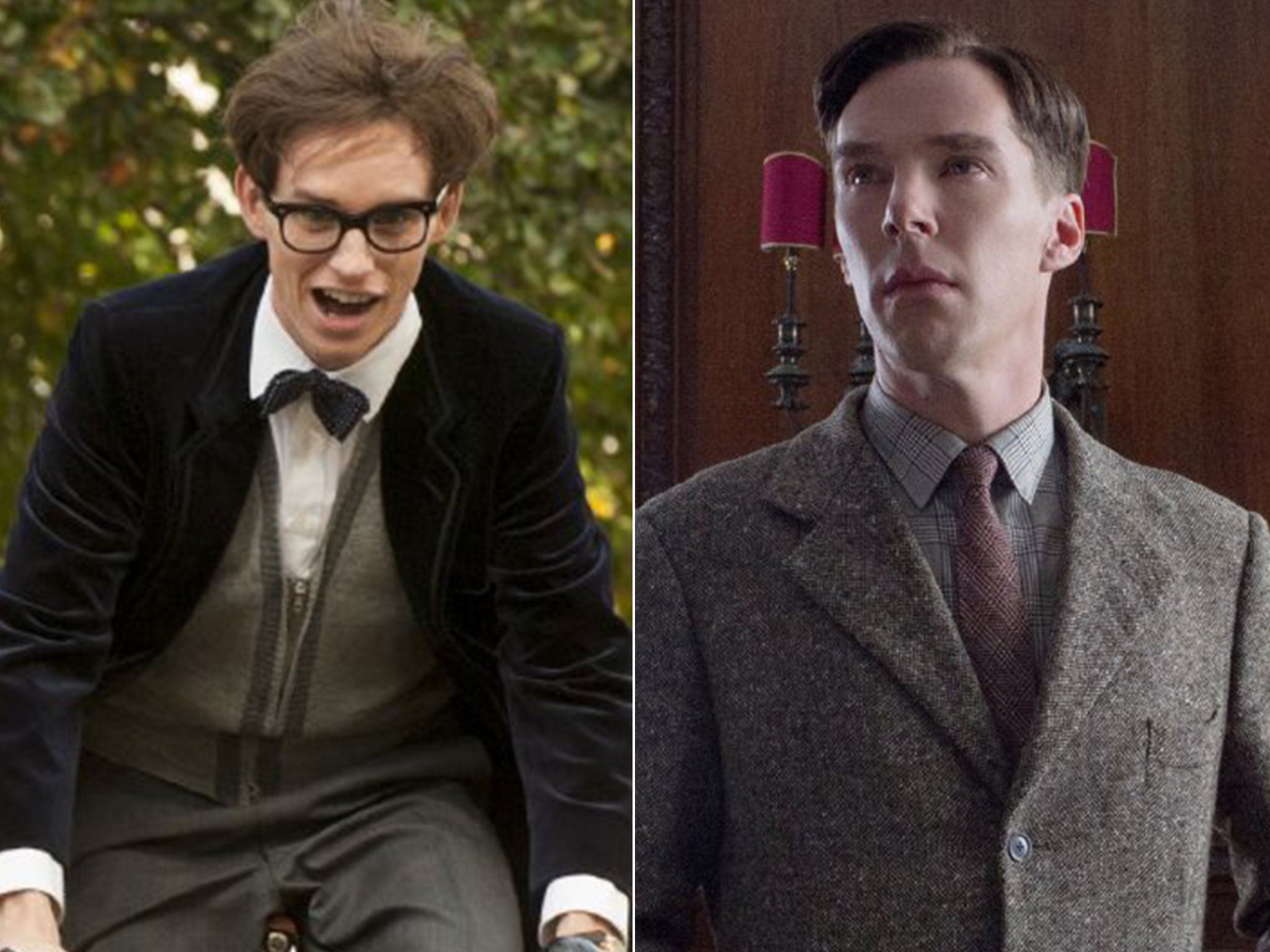Posh men and suffering women – roll up, roll up to this year’s Baftas!
Hopefully next year, there might be a few roles for women that aren't so stereotypical

Your support helps us to tell the story
From reproductive rights to climate change to Big Tech, The Independent is on the ground when the story is developing. Whether it's investigating the financials of Elon Musk's pro-Trump PAC or producing our latest documentary, 'The A Word', which shines a light on the American women fighting for reproductive rights, we know how important it is to parse out the facts from the messaging.
At such a critical moment in US history, we need reporters on the ground. Your donation allows us to keep sending journalists to speak to both sides of the story.
The Independent is trusted by Americans across the entire political spectrum. And unlike many other quality news outlets, we choose not to lock Americans out of our reporting and analysis with paywalls. We believe quality journalism should be available to everyone, paid for by those who can afford it.
Your support makes all the difference.Come January, it’s hard to remember that there are moments in the year when no one in the film industry thinks about awards season at all. But those moments do exist – and they come in June, when the popcorn-robot-superheroes slug it out for the biggest box-office totals instead, and no one worries about nuance. Even then, film producers are probably wondering if they’ll get nominated for a special effects gong.
But robots – even the ones who are sometimes cars – have to take a back seat in January, when the grown-up films appear in multiplexes instead. Although yesterday’s Bafta nominations reminded me that a grown-up film doesn’t guarantee a good plot twist: it felt like you could have put your money on a nod for Benedict Cumberbatch and Eddie Redmayne, long before their respective films were even released.
Cumberbatch received a Best Actor nomination for his portrayal of Alan Turing in The Imitation Game, a role which Derek Jacobi played (with a rather better script) in a BBC film, Breaking the Code, in 1996. But Cumberbatch is a fine actor, and his profile could barely be higher: he’s already Sherlock and Khan, and he’s about to be Dr Strange. So it’s hard not to think that Bafta gets more from nominating him – certainly in terms of media attention – than he gets from the nomination.
A grown-up film doesn’t always guarantee originality, either. Eddie Redmayne joins Cumberbatch with a Best Actor nomination for playing Stephen Hawking in The Theory of Everything. It’s obviously a demanding role because Hawking is that rarest of things: a living scientist who is a genuine, global phenomenon. He’s also been played before by none other than Benedict Cumberbatch, 10 years ago, in the BBC film Hawking. The moral of this year’s Baftas seems to be that any story the BBC covers as a drama will – in a decade or two – be remade as a successful film. The Esio Trot movie franchise is probably being dreamed up right now.
Redmayne, like Cumberbatch, is clearly having a moment: you can tell because he was named GQ’s Best-Dressed Man this week as well. It must have been a traumatic day for the man who found himself pipped into second place, which was (wait for it…) Benedict Cumberbatch. Poor Timothy Spall – sadly omitted from the Bafta list despite winning Best Actor at Cannes last year for Mr Turner – is probably wishing he’d worn a fancier suit on a few red carpets now.
Film award politics is a notoriously dark art, which is why Steve Carell’s incredible turn in Foxcatcher is interesting. The Baftas have nominated him as Best Supporting Actor, which makes the suspicious-minded viewer (me) think Foxcatcher’s producers are wary of a crowded leading-man category with the Oscars just around the corner, and trying to maximise Carell’s chances by switching categories.
And despite early predictions that there were so few films featuring women in starring roles this year that the awards committees would struggle to find enough nominees, these fears were ill founded. Nominations include Reese Witherspoon, who plays a woman suffering bereavement, Felicity Jones, who plays a woman suffering marital breakdown, Amy Adams, who plays a woman suffering her husband passing her work off as his own, and Julianne Moore, who plays a woman suffering early-onset Alzheimer’s. Hopefully next year, there might be a few roles for women who do something besides suffering a lot, but I won’t be holding my breath. (It just adds to my suffering.)
If there is a theme to this year’s Baftas, besides miserable women and a giant crush on the acting world’s poshest men, it is surely one of rewarding those who reverse expectations. Steve Carell, J K Simmons (up for a best supporting role in Whiplash) and Michael Keaton (up for the lead role in Birdman) are all renowned for their comedy chops. But this year, they are playing deeply serious, often harrowing roles, and they have been nominated accordingly.
Meanwhile, Ralph Fiennes usually takes things very seriously, whether he’s in Schindler’s List or The English Patient (or indeed in the Harry Potter movies). But he is easily my preferred Best Actor nominee, for his glorious, hilarious turn in Wes Anderson’s The Grand Budapest Hotel. I can’t remember the last time such a serious actor gave such a funny performance. So, although the bookies have Redmayne as the favourite, I’ll be damning the odds, going for a comedy (though they hardly ever win awards), and putting my money on Fiennes.
Join our commenting forum
Join thought-provoking conversations, follow other Independent readers and see their replies
Comments